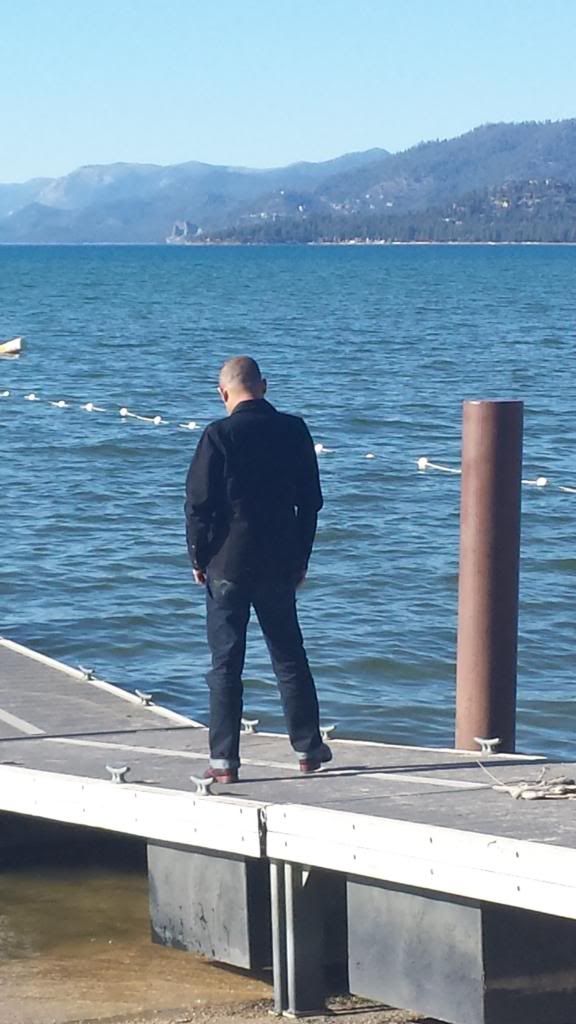The Flat Head
-
F310
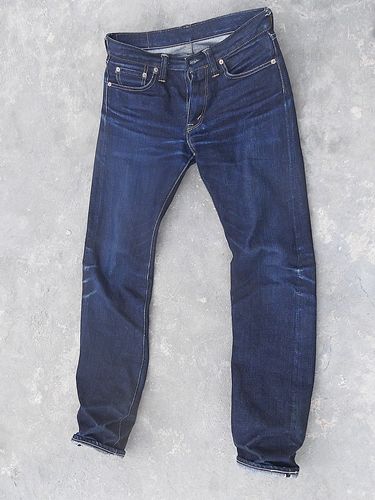
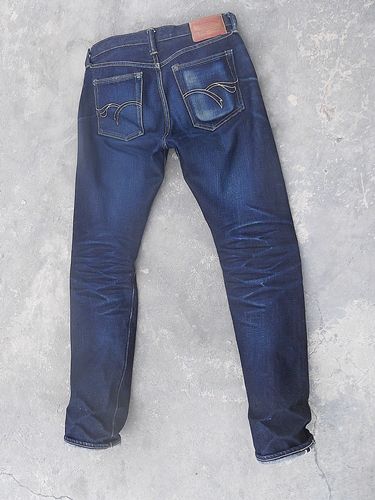
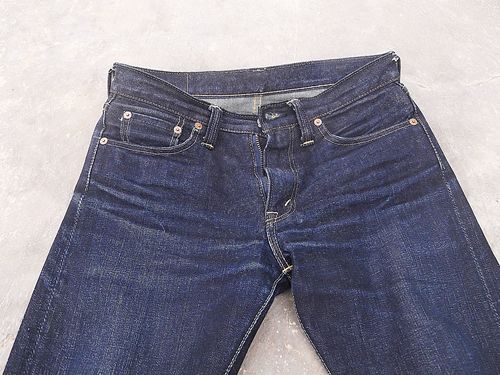
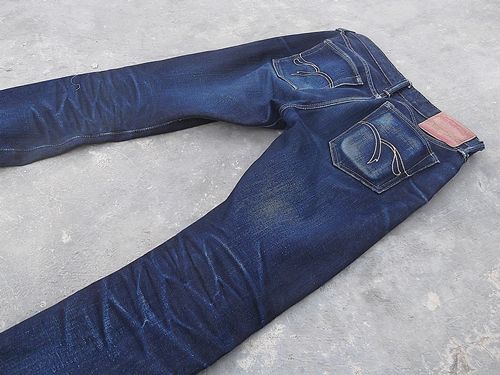
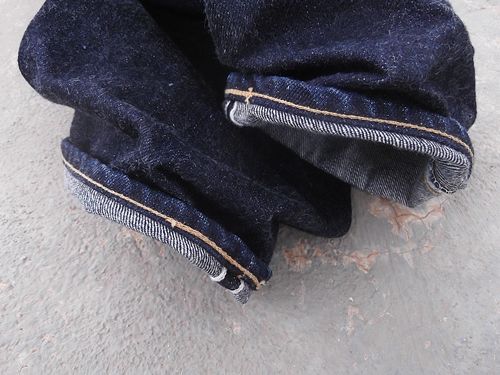
-
^thanks for part II Kyle

@Kyle@TFH:
Part Two: The Cutting House
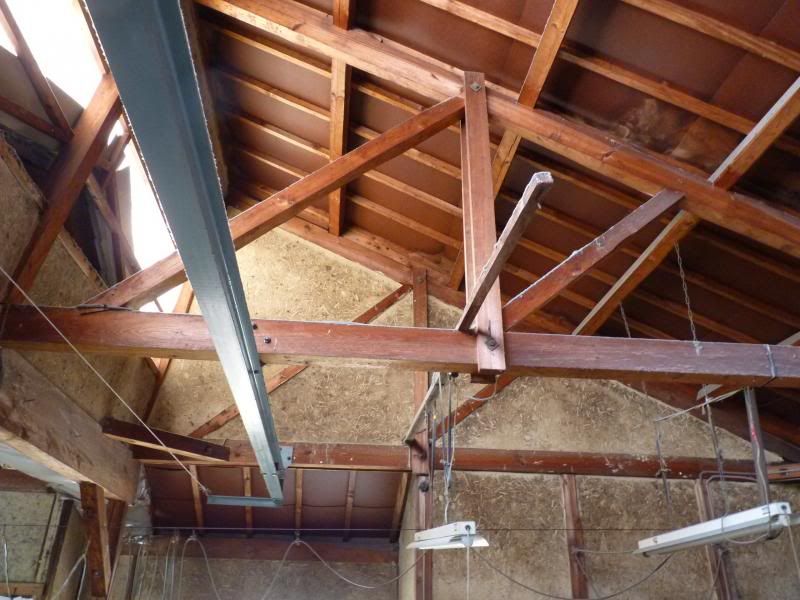
Our first stop on the Flat Head tour took us to an ordinary neighborhood of traditional Japanese-style houses. If you didn’t know exactly where to look, you would never have known that some of Japan’s best jeans are made here. There are only about five or so locations where Flat Head’s jeans are made like this, scattered throughout Kojima.
According to the sewing company, this is a traditional Kojima way of manufacture, and it’s not hard to see why. Compared to doing everything in a single factory, it’s slower and less efficient, particularly the extra step of transporting the jeans (in various states of completion) from one location to the next. This house-factory method of manufacture extends at least as far back as World War II (when civilian areas were bombed for supposedly concealing production) and is probably much older than that, even.
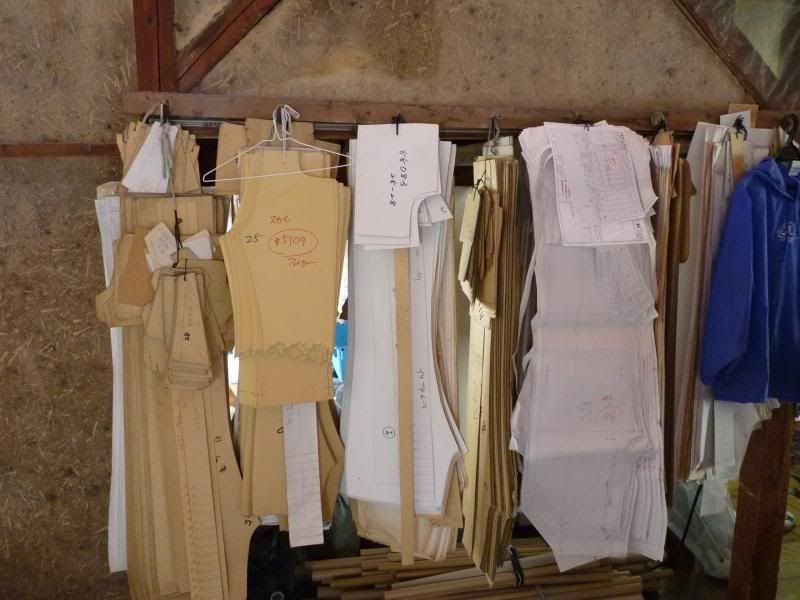
The history of this cutting house goes back much farther than the sewing company or Flat Head. According to the elderly couple who lives and works here, the building is over a hundred years old. You’d be unlikely to find anything like this from other manufacturers, and getting to see the facilities and processes used inspired a deep respect for a side of Japan that has largely vanished in the twenty-first century.
The cutting house, as the name suggests, is where the jeans are cut. The man cutting the jeans was able to tell me exactly how many layers of denim were in each stack – twenty-two. As he said, this is the optimum amount for cutting with their tools. Too many layers results in a lack of uniformity; too few, and it becomes difficult to properly control the tools.
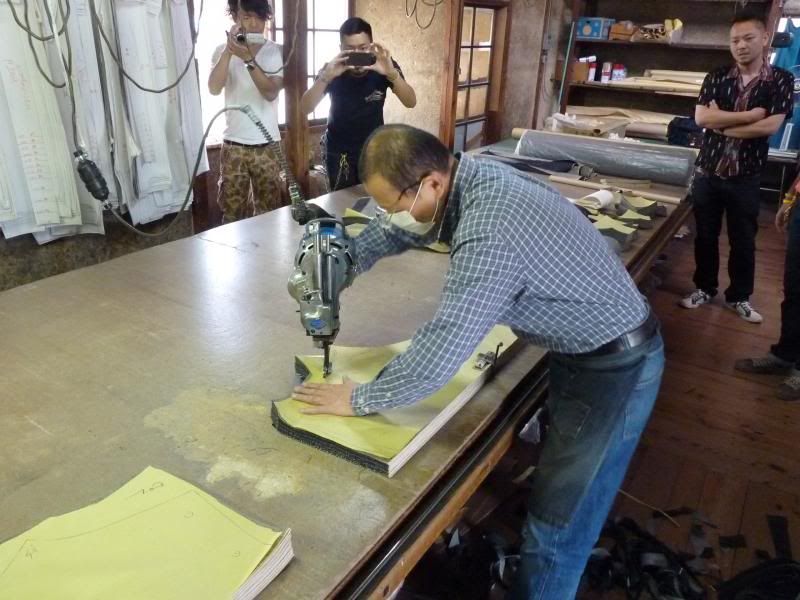
As you can see, this is done entirely by hand; there’s no automation involved. There’s always a highly-skilled hand behind each of the tools used in making our jeans.
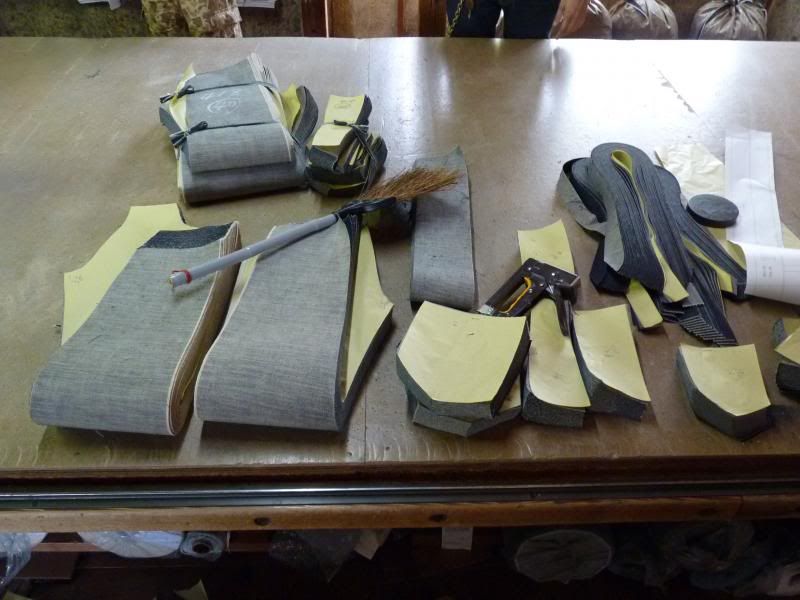
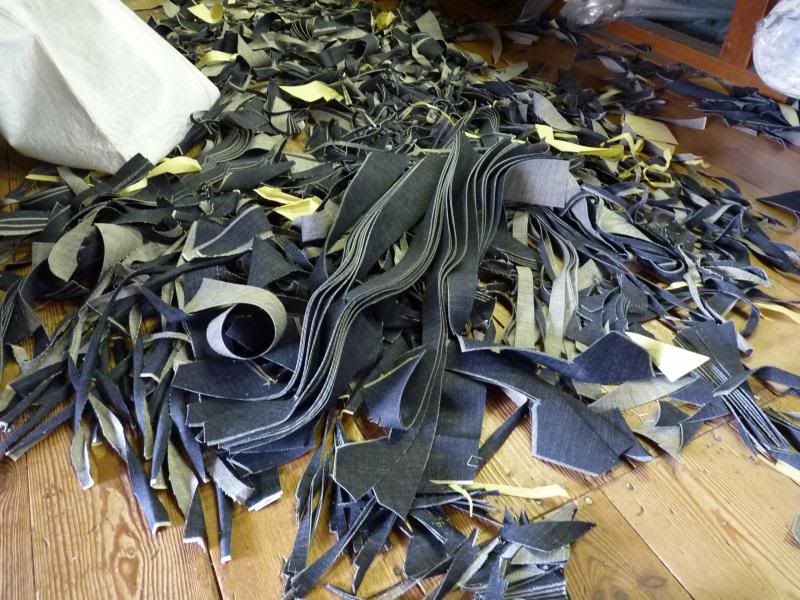
I also got the opportunity to cut some denim myself! I only practiced on waste scraps, but I could definitely tell that this was way harder than it looked. While most jeans are cut by automated machines, Flat Head does it all by hand. It actually reminded more of my father’s woodworking than anything I would have associated with making jeans.
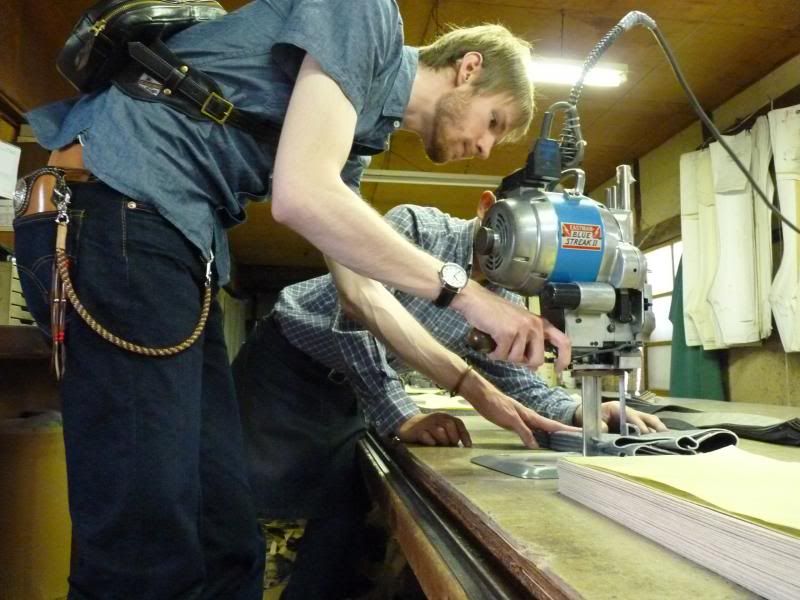
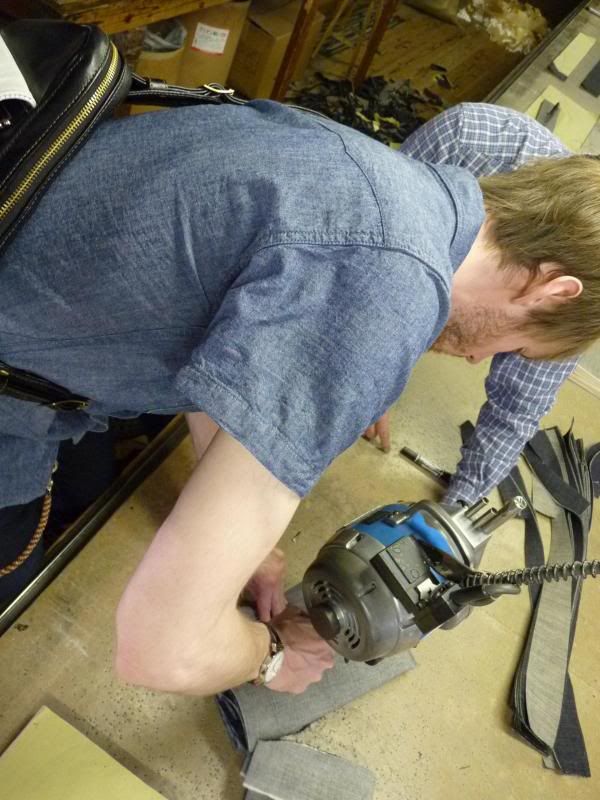
It was quite an experience getting to meet the very same people who most likely cut the jeans I’m wearing today. If you’re wondering why I’m not talking about the dyeing and weaving process, that’s because it’s not done in Kojima. Flat Head’s dyeing is a very carefully-guarded secret; besides our president Mr. Kobayashi, only two or three people in the company have ever seen our proprietary dyeing technique in person. Additionally, our denim is not woven by one of the well-known denim mills, such as Kaihara or Kuroki; I had never heard of it before, and I don't know of any other brands that get their denim from here. All that I can say is that both our proprietary dyeing and weaving processes are not found in denim by any other brands.
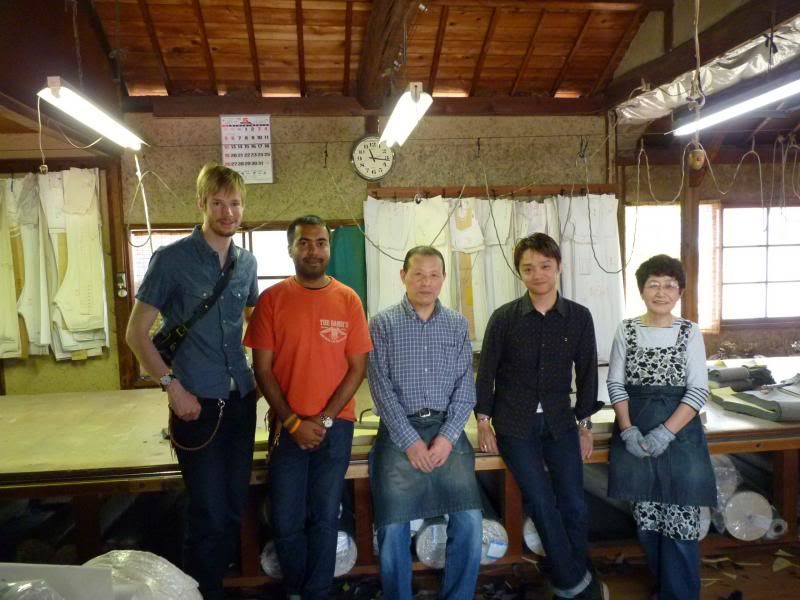
Next time we’ll see where the needle hits the selvage and check out the first of Flat Head’s sewing houses!
-
not a problem wade

@Kyle@TFH:
Part Three: The First Sewing House
Our next stop takes us to the first sewing house. We were greeted by a large, barking dog; apparently, the sewer’s daughter is involved in breeding dogs. I kept my distance.
Here, a single individual runs the entire sewing operation. She helms an old single-needle Mitsubishi sewing machine, and her task is to sew the back pockets, from start to finish.
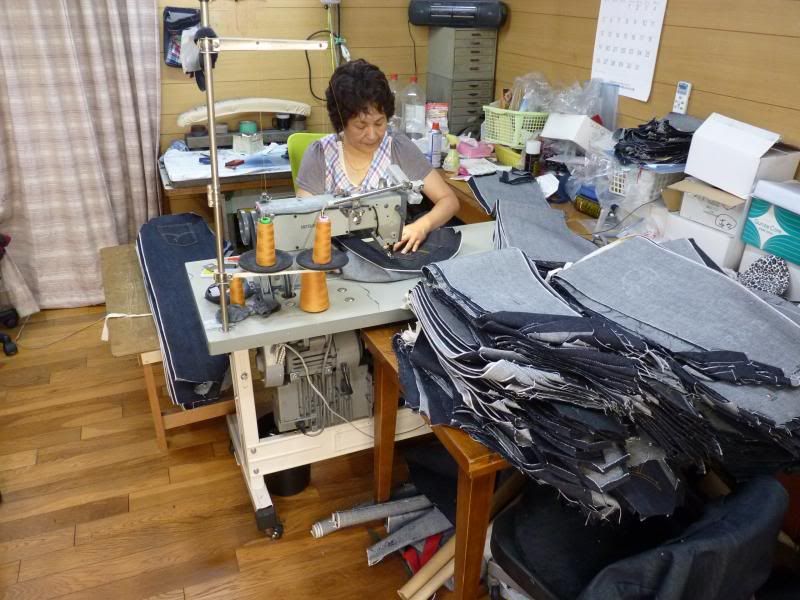
First, she sews the pocket shape from a blank piece of denim, folding the edges and riveting it to the jeans. This is actually the easy part.
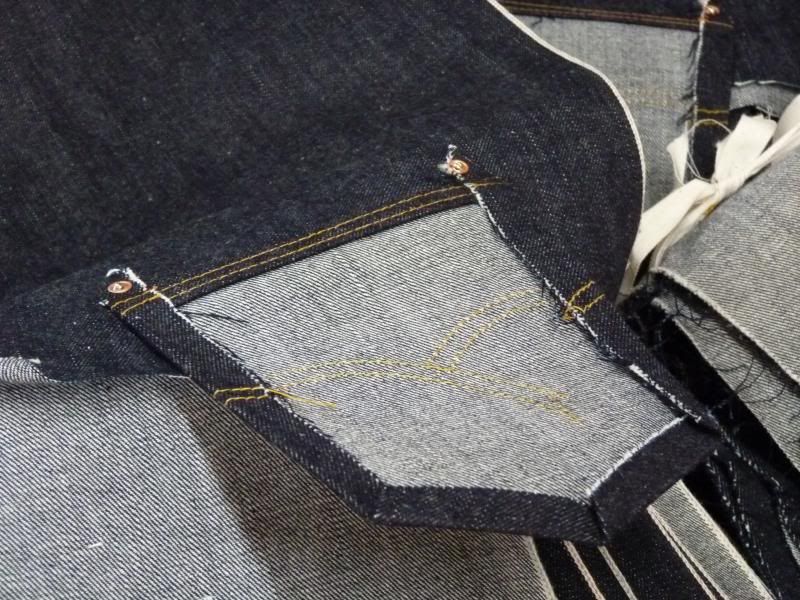
She sews the arcuates, too; though she uses a chalk pattern for tracing, the actual arcuate stitch is sewn by hand. Compare this to many brands, which stitch their arcuates using an automatic machine that creates the entire design at once.
After the arcs, the pocket is riveted. Once a sufficiently large stack of half-attached pockets has accumulated, she does the most difficult part of the process: stitching the pockets to the leg. This looks deceptively easy, but in fact it takes a high level of skill to make the narrow stitch of the back pockets without contacting the pocket rivets.
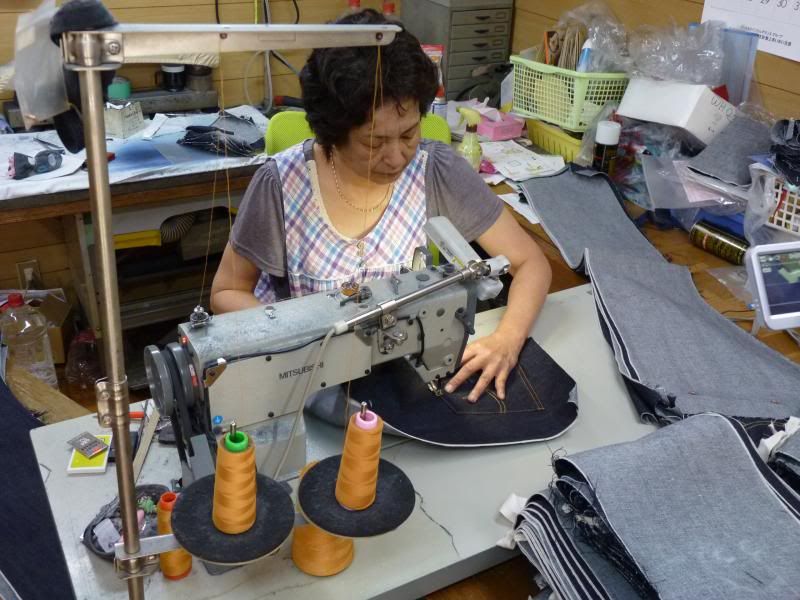
Once we finished watching, I told her that while she might have a thankless job if she worked in some factory, denim enthusiasts are the kind of people who consciously appreciate the kind of detailed effort that goes into these steps of the sewing process. She seemed quite grateful and flattered that we thought so highly of her work.
Next time we’ll venture to the main cutting sewing house, where most of the sewing takes place!
-
@Kyle@TFH:
Part Four: The Second Sewing House
Our next stop was a small house at the top of a steep hill; this couple raises fish in addition to crafting denim, but perhaps more of interest to us, they had a small van completely packed to the brim with Flat Head denim, waiting to be sewn together.
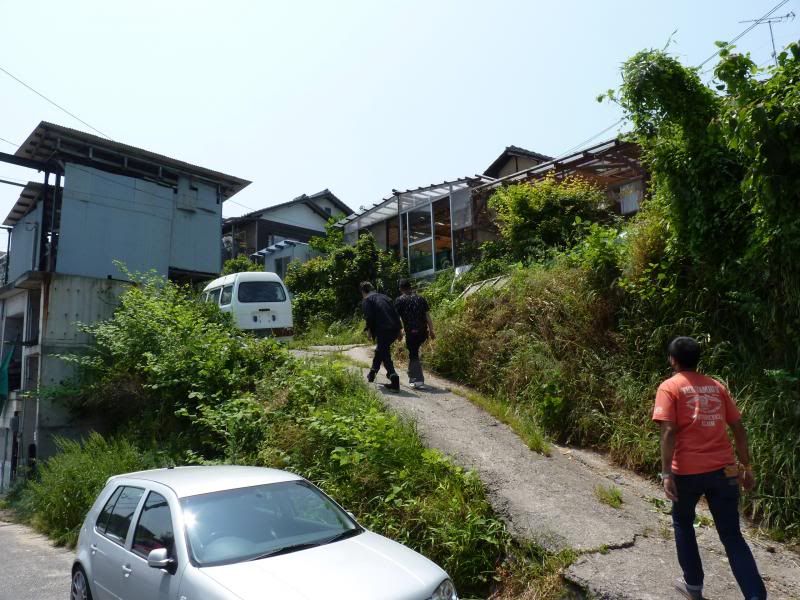
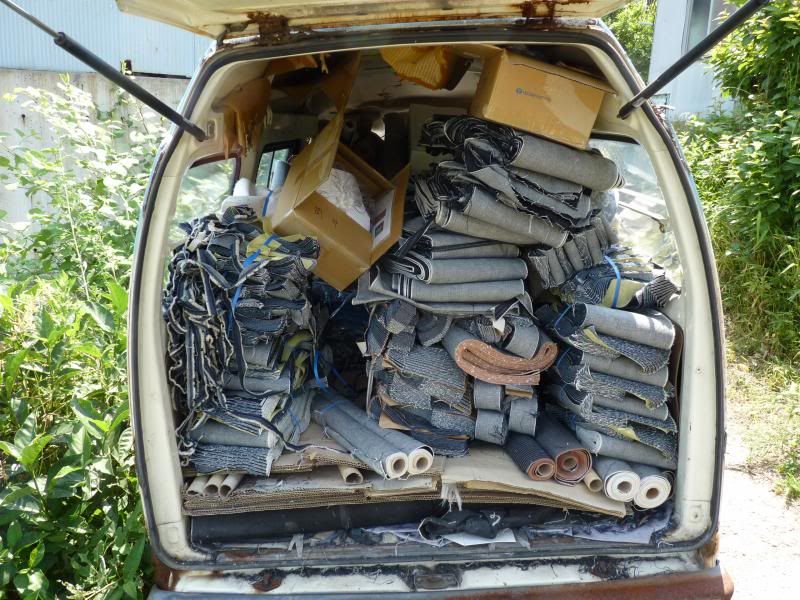
This is arguably the most important stop of our tour; it’s certainly where the most sewing takes place. The couple who run the second sewing house have a large collection of vintage sewing machines by Mitsubishi, Brother, and of course Union Special.
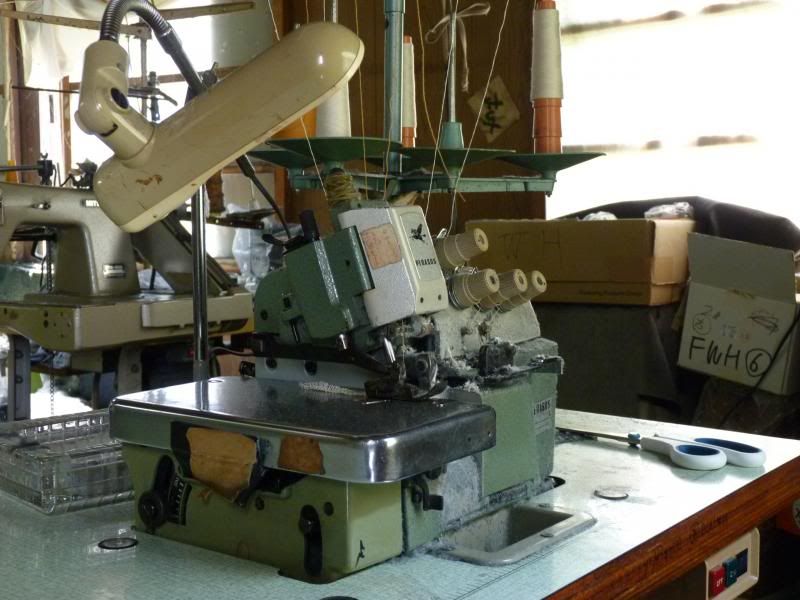
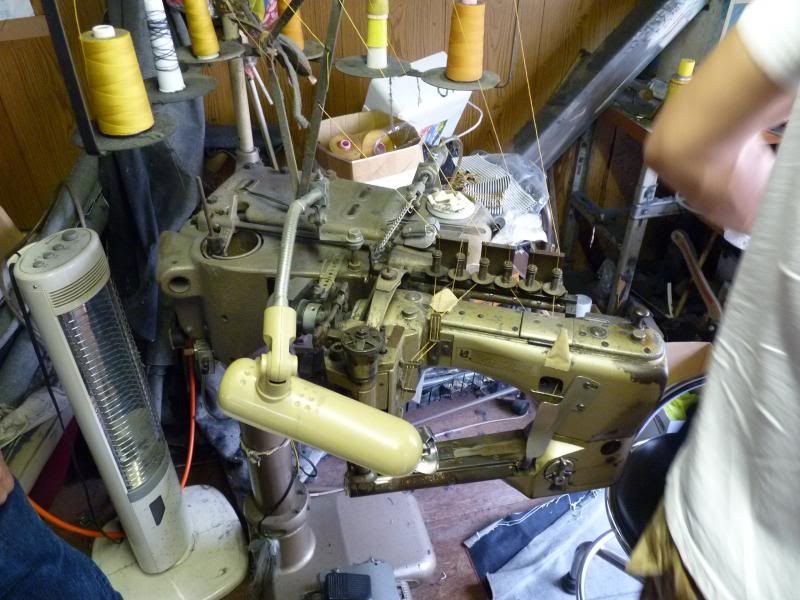
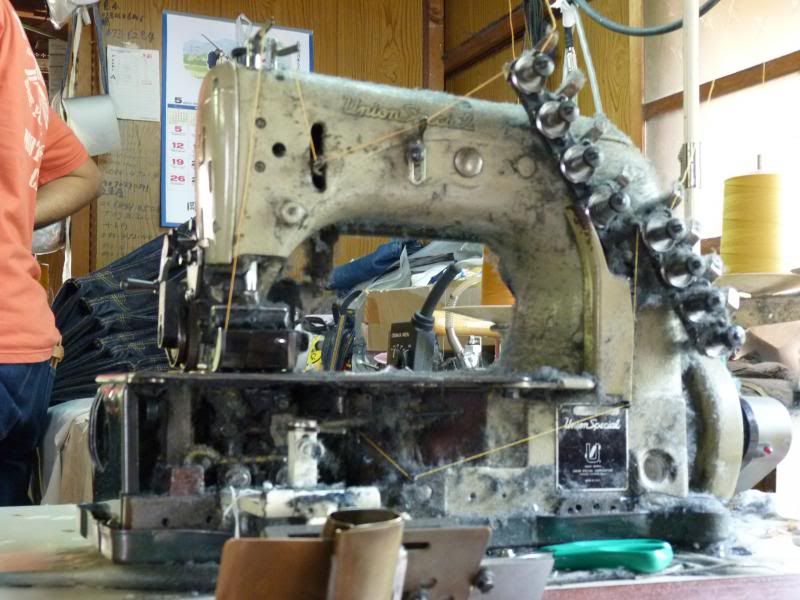
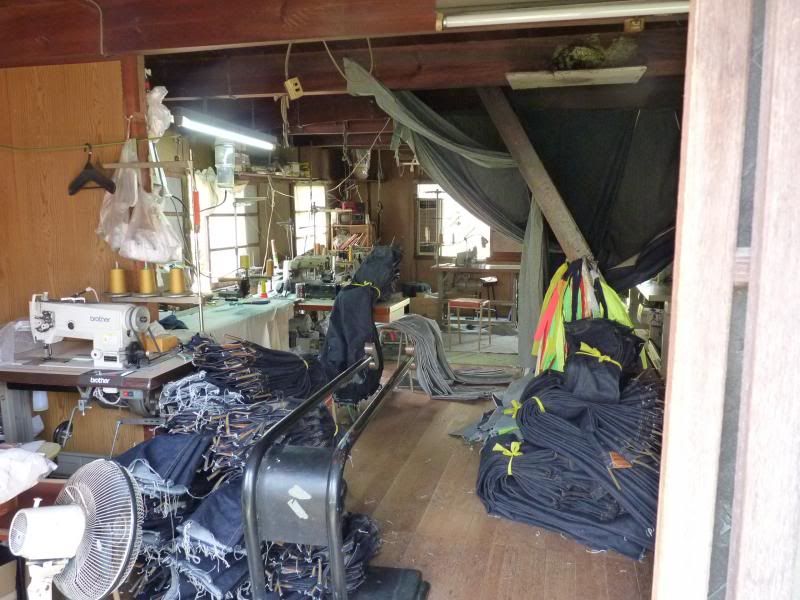
When we dropped in, they were hard at work on special 20 oz. collaboration jeans. These are apparently a real headache to sew with all-cotton thread on vintage machines, and these are the very last 20 oz. jeans that Flat Head is going to make. The man is folding the waistband and chainstitching the bottom part, which is a slow process requiring many adjustments during sewing.
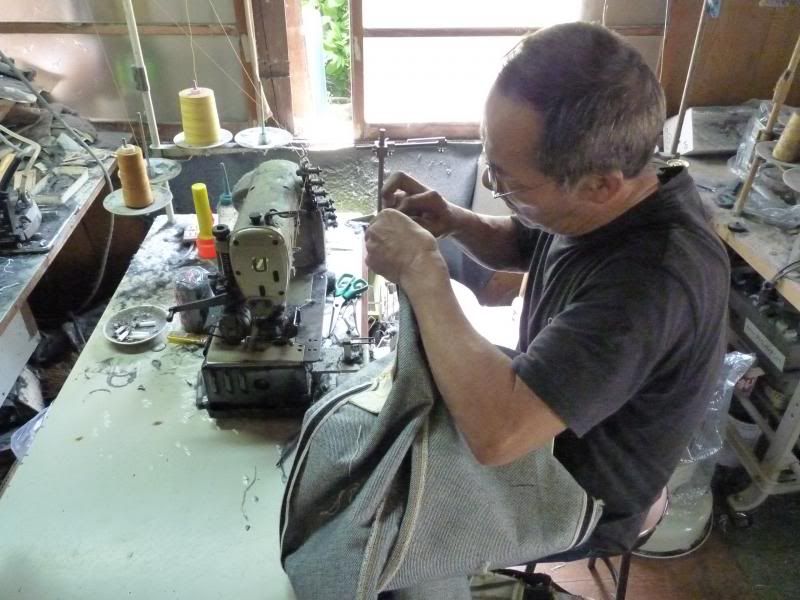
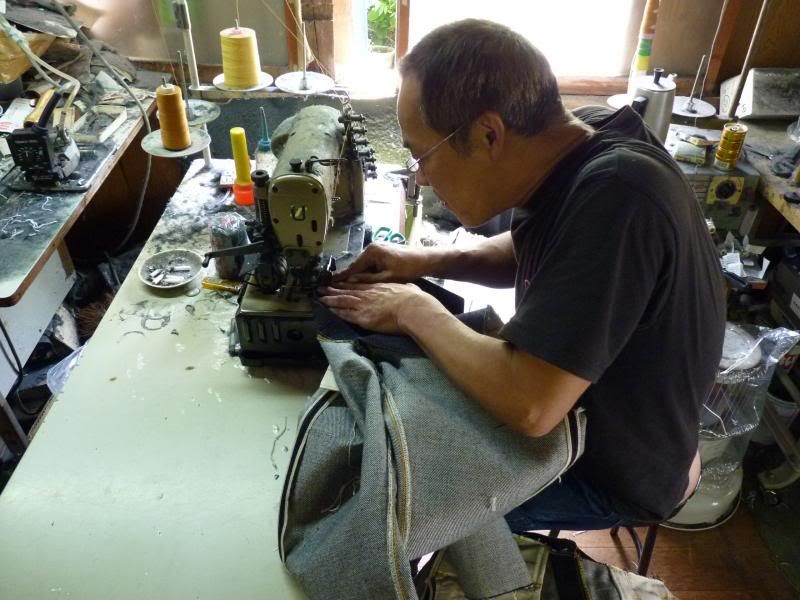
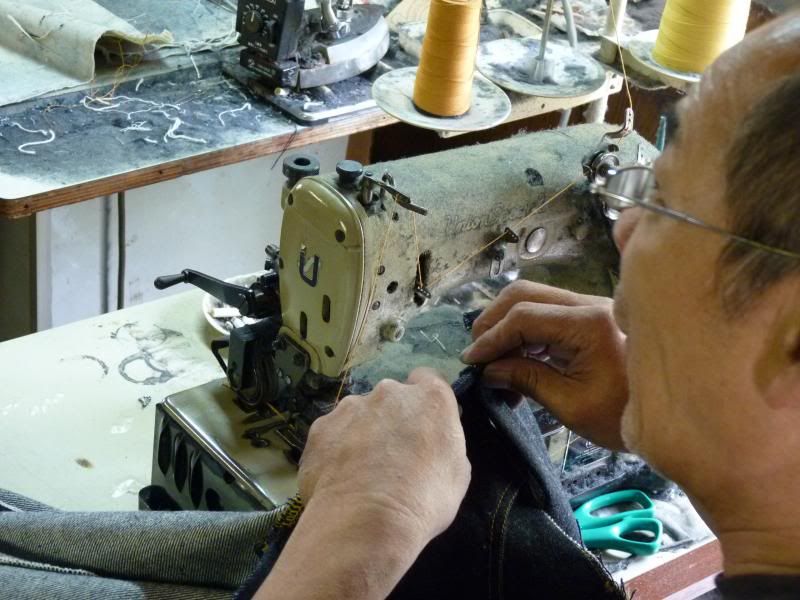
The woman is finishing up the waistband with a single-stitch machine. This is also much slower than you’d expect, because the belt loops are sewn into the waistband as well. The conventional method is to sew the entire waistband and then attach the belt loops, but instead Flat Head jeans have the belt loops sewn in at this stage for additional strength. She also sews the leather patch with the same single stitch; it’s not attached separately.
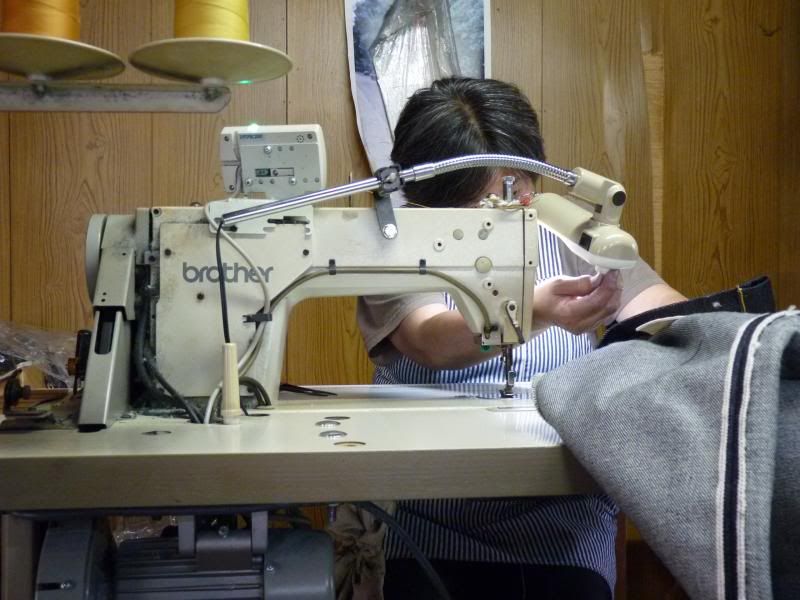
As you can probably see, this is not the fastest way to make jeans. But because all of Flat Head’s jeans are sewn here (and in one other house factory with the same machinery, which was too far away for us to visit at this time), it allows for a personal touch that’s absent from mass-produced jeans, and gives the workers greater control over processes involved. More importantly, it lets workers specialize in a few select areas of expertise, in a less distracting environment than a large factory.
Some people claim that the idea of a uniquely Japanese work ethic is hyperbole, but it makes sense once you see the careful sewing processes in person. Next time we’ll visit the last stop of the tour, where the jeans reach their final form!
-
I really dig the evo on the DnD's painted buttons. Though I look forward to all the paint being gone.

-
-
Nice. And nice kicks too

-
Maybe I was wrong. Those look great!
-
Wow Finn, perfect fit. Those tees look great!
-
I have never seen better tees than TFH. The neck reinforcement is so sturdy and the cotton so thick and soft.
-
Rafa, the tees look great on you.
-
Hey Finn666, what size are you in IH western / workshirt / Ts? Those FH t's looked good on you, but I am wary of FH sizing.
-
thanks a lot Danny! now i only need to find them again…

how ya doing mankarat?
@Omega:
Hey Finn666, what size are you in IH western / workshirt / Ts? Those FH t's looked good on you, but I am wary of FH sizing.
hey mate. i´m a L or XL in IH shirts and a L in the old IH t´s…pre-ordered two of the new t´s in M so as soon as i get those i´ll let you know!



